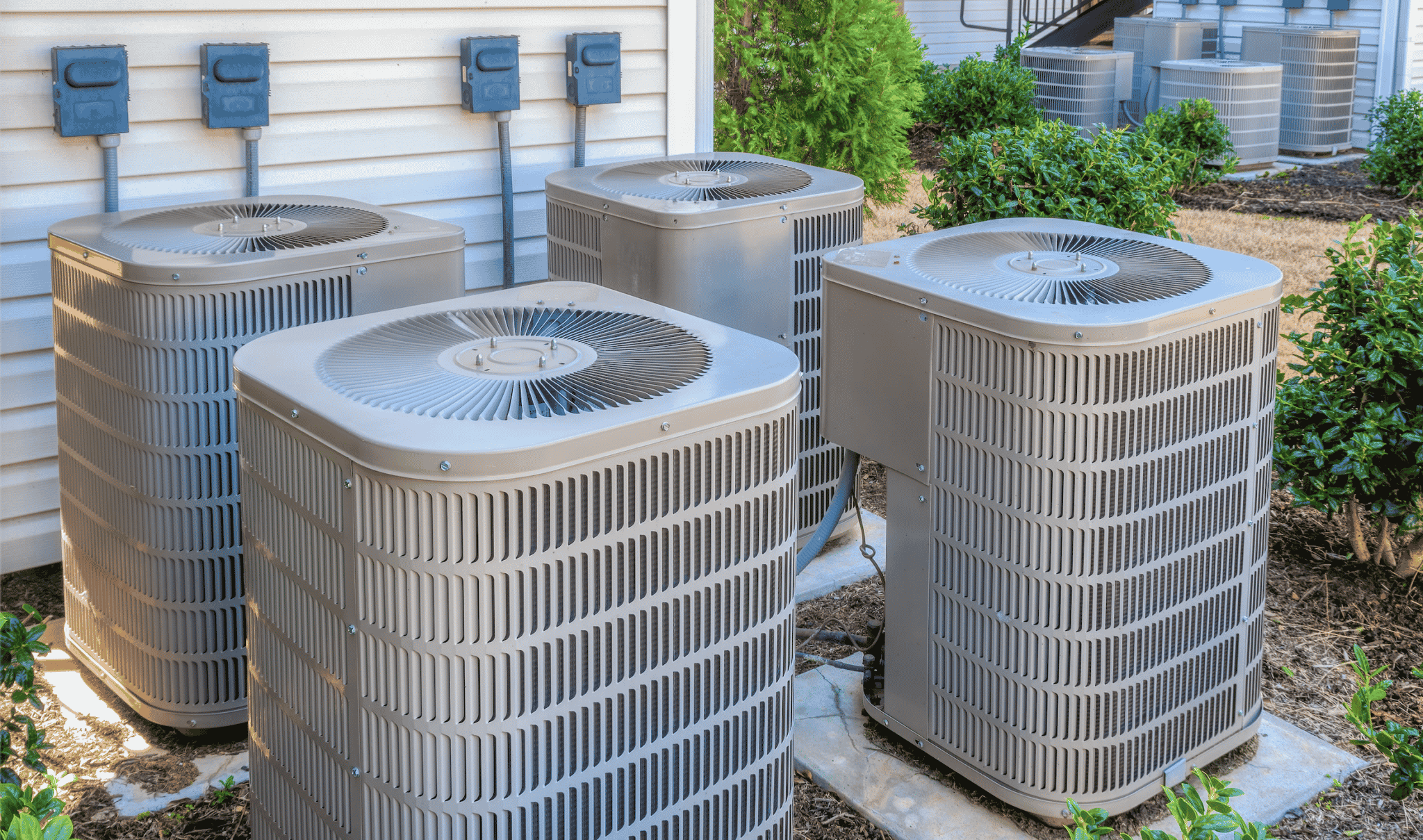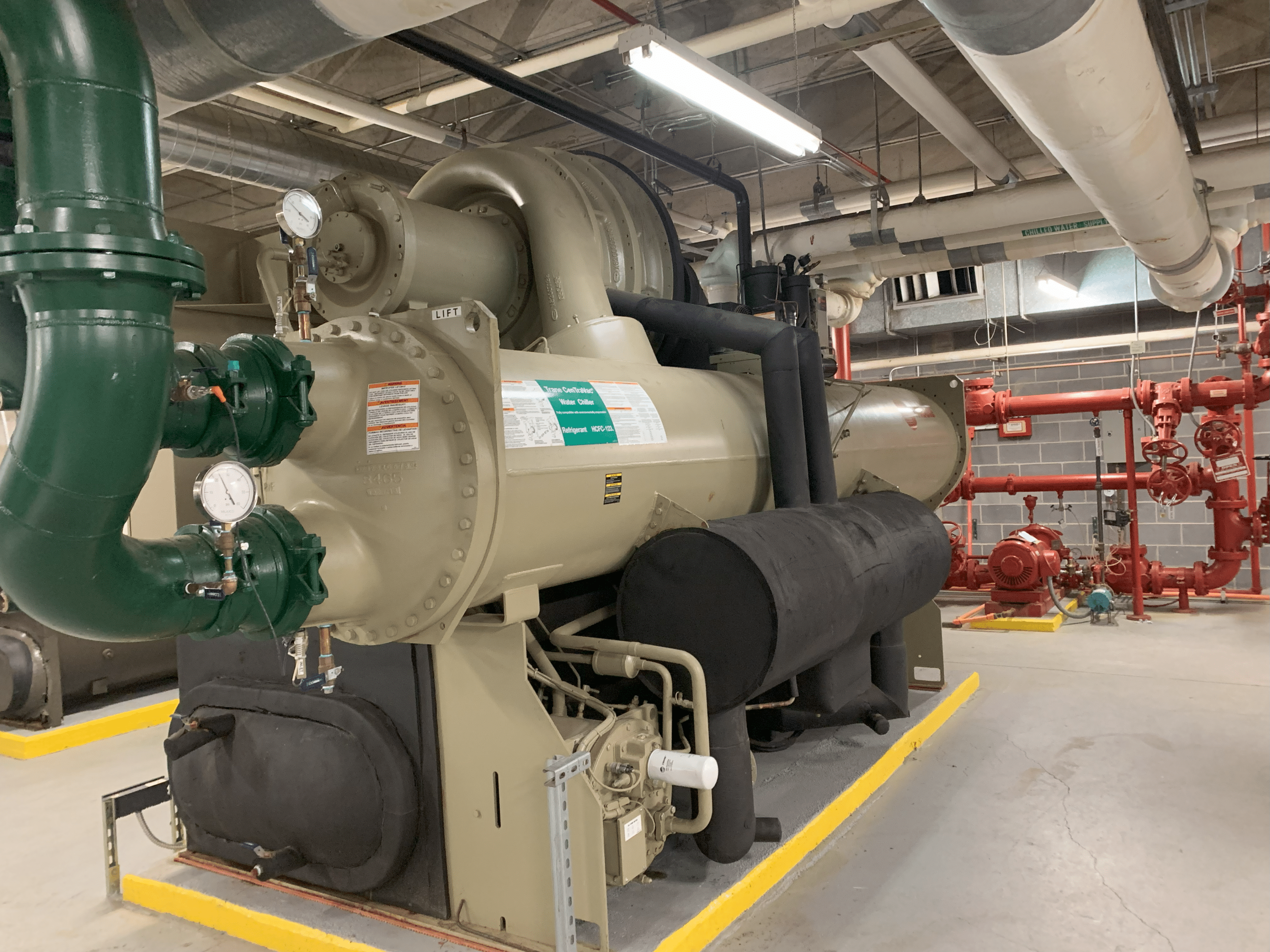Discover why HVAC experts are the preferred professionals for climate control
Wiki Article
Discovering the Important Components of an Efficient A/c System
A reliable HVAC system is improved several essential elements that work in consistency. Each part, from the thermostat to the ductwork, plays a vital function in preserving comfort and energy effectiveness. Comprehending these components is crucial for maximizing performance and enhancing indoor air quality. As one checks out these parts, the intricate partnerships between them reveal understandings into improving overall system efficiency. What specific variables add most to this performance?The Function of the Thermostat in Heating And Cooling Performance

Although commonly forgotten, the thermostat plays a critical function in the efficiency of heating and cooling systems. HVAC experts. This tiny gadget serves as the key control facility, regulating temperature setups and making certain perfect convenience within a room. By accurately noticing the ambient temperature level, the thermostat communicates with the ventilation, air, and heating conditioning units to keep the preferred climate
An effective thermostat decreases power usage by triggering the heating and cooling system just when necessary, thereby preventing excessive home heating or cooling. Modern smart and programmable thermostats boost this performance better by allowing individuals to set timetables and remotely adjust setups, adapting to day-to-day routines.
Additionally, the positioning of the thermostat is necessary; inappropriate area can result in unreliable temperature level readings, leading to inefficient procedure. Overall, a well-functioning thermostat not only improves comfort but likewise contributes considerably to power cost savings and the long life of the HVAC system.
Recognizing the Significance of Air Filters
Air filters serve a crucial function in cooling and heating systems by ensuring that the air distributing within an area continues to be healthy and clean. These filters catch dirt, irritants, and various other pollutants, avoiding them from being recirculated throughout the environment. By capturing these fragments, air filters contribute to enhanced interior air top quality, which can significantly profit occupants' health and wellness, particularly those with allergic reactions or respiratory problems.Additionally, maintaining tidy air filters boosts the effectiveness of HVAC systems. Blocked filters can limit air movement, creating the system to work more difficult to keep preferred temperatures, resulting in raised power intake and higher energy costs. On a regular basis changing or cleaning filters is an essential upkeep step that can prolong the life expectancy of HVAC equipment. Eventually, understanding the importance of air filters allows home owners and structure managers to take aggressive procedures to ensure a well-functioning, effective a/c system that advertises a comfy and risk-free indoor atmosphere.

The Functionality of the Furnace and Heatpump
Heating systems and heatpump are crucial elements of cooling and heating systems, liable for providing heat throughout chillier months. Heating systems run by heating air via combustion or electrical resistance, then distributing it throughout the home using air ducts. They commonly offer rapid home heating and can be fueled by gas, electrical power, or oil, depending on the system kind.Alternatively, heatpump move warmth instead of produce it. They remove heat from the outside air or ground, also in low temperature levels, and move it inside your home. HVAC experts. This twin capability allows heatpump to additionally offer air conditioning in warmer months, making them versatile choices for year-round environment control
Both systems require appropriate upkeep to guarantee performance and durability. While furnaces excel in extreme cool, heatpump can be beneficial in modest climates. Comprehending their unique performances help property owners in selecting the most ideal alternative for their home heating needs.
Discovering the Cooling Unit
The a/c device is an essential part of cooling and heating systems, offered in numerous types to fit various demands. Understanding the effectiveness scores of these units is necessary for making educated choices regarding energy consumption and cost. This area will explore the diverse kinds of air conditioning system and make clear just how effectiveness ratings impact efficiency.Sorts Of Air Conditioners
While different elements influence the option of air conditioning systems, recognizing the different types readily available is vital for home owners and structure managers alike. Central air conditioners are designed to cool down entire homes or buildings, using a network of ducts for airflow. Home window systems offer an even more localized service, perfect for solitary areas or tiny areas. Mobile ac unit supply versatility, here enabling individuals to move the unit as required. Ductless mini-split systems are one more choice, integrating the efficiency of main systems with the benefit of zoning, as they require no ductwork. Geothermal systems harness the planet's temperature for energy-efficient cooling. Each kind features distinctive benefits, making educated choices important for reliable environment control.
Effectiveness Ratings Clarified
Comprehending performance scores is important for choosing the right a/c device, as these metrics provide understanding right into the system's performance and energy intake. The most typical score for air conditioning system is the Seasonal Energy Efficiency Ratio (SEER), which determines the cooling result during a common air conditioning period divided by the overall electrical power input. A greater SEER indicates far better efficiency. In addition, the Power Effectiveness Proportion (EER) is utilized for measuring effectiveness under specific problems. One more vital metric is the Power Star qualification, which symbolizes that an unit meets strict power efficiency guidelines. By examining these rankings, consumers can make educated options that not only optimize comfort yet additionally reduce power prices and ecological effect.The Relevance of Ductwork and Air movement
Effective ductwork design and air movement administration play vital duties in the overall effectiveness and performance of heating and cooling systems. Correct ductwork warranties that conditioned air is distributed uniformly throughout a room, reducing temperature changes and boosting convenience. Properly designed ducts decrease resistance to airflow, decreasing the work on heating and cooling equipment and inevitably reducing energy intake.Airflow administration entails strategically positioning vents and registers to improve the flow of air. This avoids usual concerns such as cold or warm places, which can occur when airflow is blocked or improperly well balanced. Additionally, the right air duct products and insulation can further improve efficiency by reducing heat loss or gain during air transportation.
An effective ductwork system not only adds to power financial savings but can additionally lengthen the life expectancy of cooling and heating equipment by reducing unneeded stress (HVAC experts). As a result, understanding the relevance of ductwork and air flow is essential for attaining peak cooling and heating system efficiency
Regular Upkeep Practices to Enhance Efficiency
Normal maintenance techniques are crucial for making sure peak performance of heating and cooling systems. These techniques include regular assessments, cleaning, and needed fixings to maintain the system running effectively. On a regular basis changing air filters is essential, as blocked filters can obstruct air movement and decrease effectiveness. Furthermore, service technicians must check and tidy evaporator and condenser coils to stop getting too hot and power wastefulness.Annual expert evaluations are also advised, as trained service technicians can recognize potential concerns before they escalate. Lubricating relocating parts minimizes deterioration, adding to a longer lifespan for the system. In addition, guaranteeing that the thermostat functions appropriately help in keeping optimal temperature level control.

Regularly Asked Questions
Just how Often Should I Change My Thermostat?
Thermostats ought to generally be changed every 5 to one decade, depending on use and innovation innovations. Normal checks are suggested to assure peak performance, especially if experiencing irregular temperature level control or increased energy expenses.What Dimension Air Filter Is Ideal for My Cooling And Heating System?
The very best size air filter for a heating and cooling system differs by device layout. Normally, it's vital to consult the owner's handbook or inspect the existing filter measurements to ensure peak performance and air top quality.Can I Set Up a Warm Pump Myself?
Installing a heatpump independently is possible for competent individuals, however it calls for understanding of electrical systems and neighborhood codes. Employing an expert is recommended to assure correct installation and optimal system performance.Just how Do I Know if My Ductwork Is Reliable?
To identify ductwork performance, one must look for leakages, measure air flow at vents, evaluate insulation high quality, and assess temperature differences in between supply and return air ducts. Specialist evaluations can give extensive insights right into total efficiency.What Are Indicators My A/c Demands Immediate Upkeep?
Indications that a heating and cooling system requires instant upkeep include uncommon noises, irregular temperature levels, raised power bills, undesirable odors, and frequent biking. Attending to these issues quickly can prevent additional damages and assurance peak system efficiency.Air filters offer a vital feature in A/c systems by assuring that the air distributing within an area stays clean and healthy and balanced. Furthermore, preserving tidy air filters improves the effectiveness of A/c systems. Ductless mini-split systems are another option, incorporating the effectiveness of central systems with the benefit of zoning, as they require no ductwork. Comprehending efficiency rankings is crucial for selecting the best air conditioning unit, as these metrics give insight right into the system's performance and energy usage. The ideal dimension air filter for a HVAC system differs by device style.
Report this wiki page